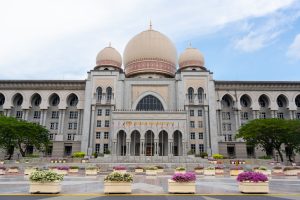Malaysia’s government is seeking to block former Prime Minister Najib Razak’s legal campaign to serve the remainder of his corruption-related prison sentence under house arrest.
The Attorney General’s Chambers (AGC) announced yesterday that it has filed a motion seeking permission to appeal to the Federal Court a Court of Appeal ruling, accepting Najib’s bid to see a document he claims permits him to serve the sentence at home.
In 2020, Najib, 71, was found guilty of abuse of power, criminal breach of trust, and money laundering for illegally receiving around $10 million from SRC International, a former unit of 1MDB.
The AGC’s announcement marks the latest move in a tit-for-tat legal campaign that Najib has waged since August 2022, when he lost his final appeal against his conviction and began his 12-year sentence at Kajang prison in Selangor.
Having failed to overturn the sentence outright, Najib, 71, has waged a legal campaign that seeks to convert his current prison sentence, which was halved by a royal pardon in January 2024, to house arrest. At the center of his case is an unpublished “addendum order” that his legal team claims was issued by the former king, Sultan Abdullah Ahmad Shah of Pahang, alongside the pardon, entitling him to house arrest. Najib claims that the latter has been deliberately ignored or concealed by the authorities.
The Court of Appeal’s January 6 ruling overturned an earlier High Court ruling dismissing Najib’s previous request that the court confirm the existence of the royal order, and, if it is discovered, to execute it.
During the hearing, Najib’s legal team produced a letter from the Royal House of Pahan confirming the existence of a royal decree issued by Pahang Sultan Abdullah Ahmad Shah, the former king, allowing Najib to serve the rest of his prison sentence at home. The Royal House of Pahang later confirmed to the media that the January 4 letter was “valid and authentic.”
Prime Minister Anwar Ibrahim’s government continues to deny any knowledge of the royal order. Last month, Anwar denied concealing the document, and said that “nothing was hidden.”
In its statement yesterday, the AGC said that the Court of Appeal’s decision “was reached through a split ruling, reflecting differing interpretations of the law among the three-member panel,” Channel News Asia reported. It also said that the case involved significant questions of public interest and so needed to be examined by Malaysia’s top court.
“The AGC believes that this step is not only important to ensure justice in this case, but also to uphold the principle of rule of law and clarify the interpretation for the benefit of all parties,” it said in its statement. Last month, the AGC also requested a gag order to prevent the public from discussing issues related to Najib’s judicial review and the royal addendum.
The issue is unlikely to be resolved definitively in the immediate future, but should Najib succeed in his house arrest bid, it could mark the beginnings of a political comeback that once seemed unlikely. As Sophie Lemière wrote for Channel News Asia last month, even if confined to his home, Najib’s release from prison “would upset the current balance of power.”
She argued that Najib’s release would reinvigorate his influence within the United Malays National Organization (UMNO) and pose “a direct threat” to the power of the party’s current president, Ahmad Zahid Hamidi. It would also likely weaken Anwar, given that UMNO is part of his coalition government.
“Najib’s resurgence could overshadow Anwar’s already much-contested achievements, definitely discredit his anti-corruption agenda, and diminish even further his appeal to Malay voters – a demographic that Najib has consistently outperformed him with,” Lemière wrote.

































